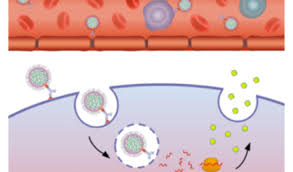
Breaking News
 Boots on the Ground...The news is getting worse so keep prepping.
Boots on the Ground...The news is getting worse so keep prepping.
 O'Keefe Media Group: Secret Service Agent Assigned to Vance Leaks Sensitive Information
O'Keefe Media Group: Secret Service Agent Assigned to Vance Leaks Sensitive Information
 Montana Program Makes Youth Offenders Talk with Their Victims and Recidivism Plummets
Montana Program Makes Youth Offenders Talk with Their Victims and Recidivism Plummets
 Gorgeous Bridge Allows for Walking and Biking Between US and Canada Set to Open in 2026
Gorgeous Bridge Allows for Walking and Biking Between US and Canada Set to Open in 2026
Top Tech News
 Superheat Unveils the H1: A Revolutionary Bitcoin-Mining Water Heater at CES 2026
Superheat Unveils the H1: A Revolutionary Bitcoin-Mining Water Heater at CES 2026
 World's most powerful hypergravity machine is 1,900X stronger than Earth
World's most powerful hypergravity machine is 1,900X stronger than Earth
 New battery idea gets lots of power out of unusual sulfur chemistry
New battery idea gets lots of power out of unusual sulfur chemistry
 Anti-Aging Drug Regrows Knee Cartilage in Major Breakthrough That Could End Knee Replacements
Anti-Aging Drug Regrows Knee Cartilage in Major Breakthrough That Could End Knee Replacements
 Scientists say recent advances in Quantum Entanglement...
Scientists say recent advances in Quantum Entanglement...
 Solid-State Batteries Are In 'Trailblazer' Mode. What's Holding Them Up?
Solid-State Batteries Are In 'Trailblazer' Mode. What's Holding Them Up?
 US Farmers Began Using Chemical Fertilizer After WW2. Comfrey Is a Natural Super Fertilizer
US Farmers Began Using Chemical Fertilizer After WW2. Comfrey Is a Natural Super Fertilizer
 Kawasaki's four-legged robot-horse vehicle is going into production
Kawasaki's four-legged robot-horse vehicle is going into production
 The First Production All-Solid-State Battery Is Here, And It Promises 5-Minute Charging
The First Production All-Solid-State Battery Is Here, And It Promises 5-Minute Charging
Nanotech platform Carries mRNA Directly to Target Cells

The groundbreaking method may prove useful in treating myriad malignancies, inflammatory diseases and rare genetic disorders.
Lipid nanoparticles (LNP) were used to deliver modified messenger RNA to treat inflammatory bowel diseases and other diseases.
Prof. Dan Peer, Molecular Cell Biology at TAU's Faculty of Life Sciences, led the research for the new study.
Over the past few years, lipid carriers encapsulating messenger RNAs (mRNAs) have been shown to be extremely useful in altering the protein expressions for a host of diseases. But directing this information to specific cells has remained a major challenge.
"In our new research, we utilized mRNA-loaded carriers — nanovehicles carrying a set of genetic instructions via a biological platform called ASSET — to target the genetic instructions of an anti-inflammatory protein in immune cells," says Prof. Peer.

 Storage doesn't get much cheaper than this
Storage doesn't get much cheaper than this

